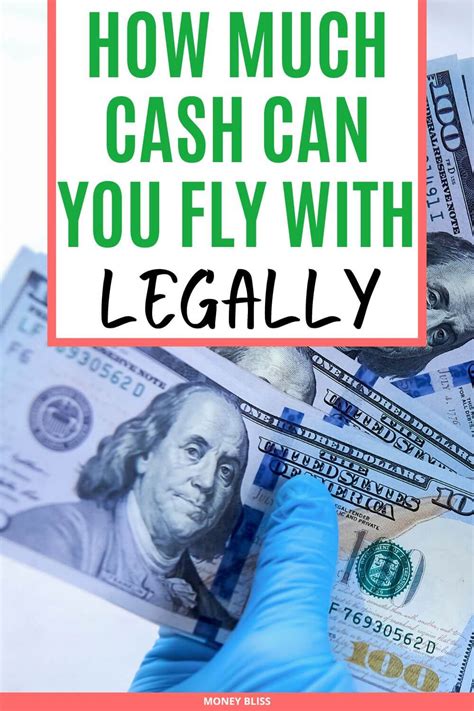When traveling by air, it's essential to understand the regulations surrounding the transportation of cash. Whether you're planning a domestic or international trip, knowing the rules can help you avoid any potential issues or delays. In this article, we'll delve into the specifics of flying with cash, exploring the key considerations and guidelines to keep in mind.
Understanding the Basics: Cash Transportation Regulations

The rules governing the transportation of cash while flying are primarily determined by the country’s customs and border protection agencies. In the United States, for example, the Transportation Security Administration (TSA) and U.S. Customs and Border Protection (CBP) are the primary agencies responsible for enforcing these regulations. While there are no specific limits on the amount of cash you can carry, there are reporting requirements for large sums.
Reporting Requirements for Large Cash Amounts
In the United States, if you’re carrying more than $10,000 in cash, you’re required to file a Report of International Transportation of Currency or Monetary Instruments (FinCEN 105) with U.S. Customs and Border Protection. This report must be completed and submitted before your departure or arrival. Failure to comply with this requirement can result in fines and potential legal action. It’s crucial to understand that this reporting requirement applies to not only cash but also other monetary instruments, such as traveler’s checks and money orders.
| Reporting Threshold | Requirement |
|---|---|
| $10,000 or more | File FinCEN 105 with U.S. Customs and Border Protection |
| Less than $10,000 | No reporting requirement, but cash may still be subject to inspection |

International Travel Considerations

When traveling internationally, it’s vital to research the specific regulations of your destination country regarding cash transportation. Some countries have stricter limits or reporting requirements, and failure to comply can lead to significant issues, including confiscation of your funds or even detention. For instance, countries like China and India have strict regulations on the amount of cash that can be brought into the country.
Country-Specific Regulations
Understanding the local laws and regulations of your destination is critical to avoiding any complications. For example, if you’re traveling to the European Union, you should be aware of the EU’s cash control regulations, which require the declaration of cash amounts exceeding €10,000 when entering or leaving the EU. Similarly, other countries may have their own set of rules and regulations that you need to be aware of.
Key Points
- Research the specific cash transportation regulations of your destination country.
- Understand the reporting requirements for large cash amounts in the United States and other countries.
- Be prepared to explain the source and purpose of your funds to customs officials.
- Consider the use of alternative payment methods, such as credit cards or traveler's checks, to minimize the need for large amounts of cash.
- Keep your cash secure and be mindful of your surroundings to avoid theft or loss.
Practical Considerations for Traveling with Cash
Beyond the regulatory aspects, there are practical considerations to keep in mind when traveling with cash. Safety and security are paramount; it’s essential to take measures to protect your funds from theft or loss. Using hotel safes, keeping your cash in a secure and accessible location, and being aware of your surroundings can help minimize risks.
Safety and Security Measures
In addition to following local regulations and reporting requirements, taking common-sense precautions can help ensure a smooth and secure travel experience. This includes using reputable exchange services, avoiding the display of large amounts of cash, and keeping your valuables secure and out of sight.
What happens if I don't report my cash and I'm carrying more than $10,000?
+If you fail to report your cash and you're carrying more than $10,000, you may face fines, penalties, and potential legal action. It's crucial to comply with the reporting requirements to avoid these consequences.
Can I use credit cards or traveler's checks instead of carrying large amounts of cash?
+Yes, using credit cards or traveler's checks can be a convenient and secure alternative to carrying large amounts of cash. Many businesses around the world accept these forms of payment, and they can help minimize the need for cash.
How do I declare my cash when entering or leaving the United States?
+You can declare your cash by filing a Report of International Transportation of Currency or Monetary Instruments (FinCEN 105) with U.S. Customs and Border Protection. You can obtain this form from the U.S. Customs and Border Protection website or at the port of entry.
In conclusion, understanding the regulations and guidelines surrounding the transportation of cash while flying is essential for a smooth and secure travel experience. By being aware of the reporting requirements, country-specific regulations, and practical considerations, you can minimize the risks associated with traveling with cash and ensure a successful journey.



